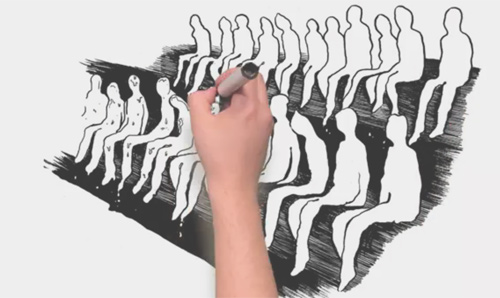
Society and Environment (SERG)
Society and Environment (SERG) seeks to transform dominant analytical approaches to the study of the environment in order to develop just, inclusive, and sustainable transitions to future ways of living on earth.

Members of SERG conduct research into diverse environmental issues, providing key evidence and arguments for how and why more inclusive and egalitarian forms of environmental policy and practice can be achieved.
Research interests include water governance, global urbanization, terrestrial geo-engineering, waste, political ecologies, and climate change policy.
Members of SERG continue to be foundational to contemporary environmental thought, especially in the fields of urban political ecology and nature/society theory.
SERG members are interested in contesting environmental injustice and exclusion, as well as better understanding citizen protest and contemporary political legitimacy.
As part of this, SERG members illuminate the sites, actors, reasons and mechanisms involved in fostering green practices in the 21st century.

This includes analyses of sustainability experimentation as well as studies of urban governance, especially through work on processes such as ecological gentrification, urban greening, and carbon accounting.
SERG members are interested in how human and non-human processes and dynamics intersect and become entangled.
Members conduct research on how to change key elements of socio-ecological regimes, such as energy supply, water usage, and the disposal and re-use of commodities.
SERG members contribute to global theoretical debates on social and environmental vulnerability, democratization, political ecology, and the possibilities for emancipatory socio-ecological transformations.
Through studies of contemporary environmental thought and action, SERG members continue to further the development of ecologically and socially just transitions in the increasingly pressing context of planetary environmental change.
Our research
- Identifying feasible and socially just means of altering systems of water supply, energy supply and everyday commodity provision
- Interrogating the political and spatial challenges associated with ongoing transformations of the global energy system in response to climate change and security challenges
- Theorising and substantiating the urban process as a contested assemblage of entangled social and physical processes
- Theorising the society-nature nexus
- Understanding and reducing people’s vulnerability to environmental insecurity
- Unpacking and advancing the politics and practices of sustainability transitions in contemporary urban contexts
- CO2RE national carbon dioxide removal research hub
- Co-CREATE conditions for responsible research on solar radiation modification
- Energy Demand Research Centre
- Power Up
- SALIENT
- NERC Digital Solutions Hub
- Enabling Water Smart Communities (EWSC)
- Elder and Wiser with Manchester Museum
- Horizon2020 Power Up
- UKRI/ERC Consolidator Grant GENERATE
Our people
- Alison Browne - Everyday life; infrastructure; water, sanitation & hygiene (WASH); waste; sustainable consumption and production; environmental change; Two-Way science and pedagogy (Noongar knowledges)
- Arianna Tozzi – Hallsworth Research Fellow, Agrarian Transformations; Water and Agroecology; Climate politics, Environmental humanities; more-than-human geographies, Rural Futures
- Aurora Fredriksen - More-than-human geographies; Affect and emotion; Wildlife; Feminist science studies; Environmental humanities
- Erik Swyngedouw - Political ecology; Democratisation; Hydro-social change; Political conflict; Urban insurgencies; Critical Theory, Environmental Politics
- Hannah Dickinson - Simon Research Fellow: Marine biotechnology and biomaterials, the Blue Economy, Ocean governance, Illegal wildlife trade, More-than-human geographies, the Anthropocene
- Henrik Ernstson - Urban political ecology; Postcolonial urbanism; Environmental expertise and knowledge politics; Political and social movements; Film-based ethnography
- Jack Benton – Leverhulme Early Career Fellow: Natural experiments; Health and wellbeing; Built environments; Systematic observation; Video technologies; Realist methodology
- James Evans - Urban living labs; Sustainable cities; Smart cities; Governance; Mobile methods
- Joe Blakey – Environmental knowledge politics; post-foundational political theory; aesthetics; de- and re-politicisation; net zero; carbon (in)accountability; critical accounting
- Karen Lucas - Mobility inequalities and transport-related social exclusion in global north and south
- Katherine Sugar – Low carbon governance; inclusive transitions; urban energy transitions; energy justice; net zero; just transitions
- Laura Pottinger - People and plant relationships; everyday life; activism; creative, ethnographic and participatory methods; sustainable production and consumption
- Mark Usher - Urban nature and ecology; Water politics and governance; State, territory and citizenship; Infrastructure and transitions; Governmentality and biopolitics
- Nate Millington - Urban political ecology; Infrastructure; Climate change; Water; Waste
- Nathaniel O'Grady - Emergency, climate change, affect, governmentality, digital technologies, infrastructure
- Nerea Okong’o - Post-coloniality, Black geographies, Extractives and society, Feminist Political ecologies, African feminisms, difference geographies
- Rob Bellamy - Climate change, carbon dioxide removal, geoengineering, tipping points, nature
- Noel Castree - Political economy; Marxism; Environmental change; Expertise; Politics of knowledge
- Saska Petrova - Vulnerability and precarity; Gender and infrastructure; Environmental governance; Rural and peri-urban communities; Post-colonial political ecologies
- Stefan Bouzarovski - Political ecologies of energy demand, representational and material geographies of social injustice, the social life of infrastructural repair, urban climate transformations and intermediaries
- Aisling O’Rourke
- Ali Meert Ipek
- Ana Lambert
- Cameron Cloakey
- Chantal Bright
- Daxing Wang
- Dongyang Mi
- Ellie Barker
- Francisca Vergara Pinto (HCRI/Geog)
- Hannah Charles
- Hannah Ward
- Harry Quealy
- Hayato Koga
- Jan Wisniewski (based at Melbourne)
- Majd Jayyousi
- Manon Burbidge
- Mengyao Li
- Mushtahid Salam
- Niamh Nelson-Owens
- Oliver Bignell
- Qi Liu
- Shahana Akhter
- Yihan Yan
- Yubo Liu
- Godfred Amankwaa (UK Centre for Ecology and Hydrology)
- Kelly Watson - Evaluation and valuation practices; Urban learning; Health and wellbeing; Smart cities; Built environment and infrastructure
- Joe Cahill (Artesia Consulting)
- Wenjuan Gong; Visiting Fellow, Director, Institute of Population and Environment, School of Sociology & Anthropology Xiamen University, China
- Xingju Zhong; Visiting Fellow, Associate Professor, School of Public Policy and Administration, Chongqing University, China
